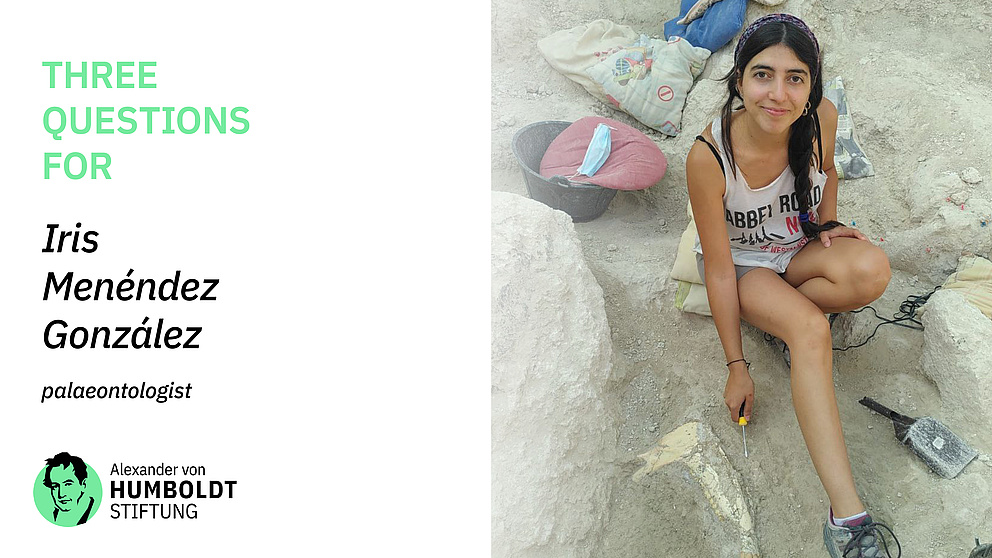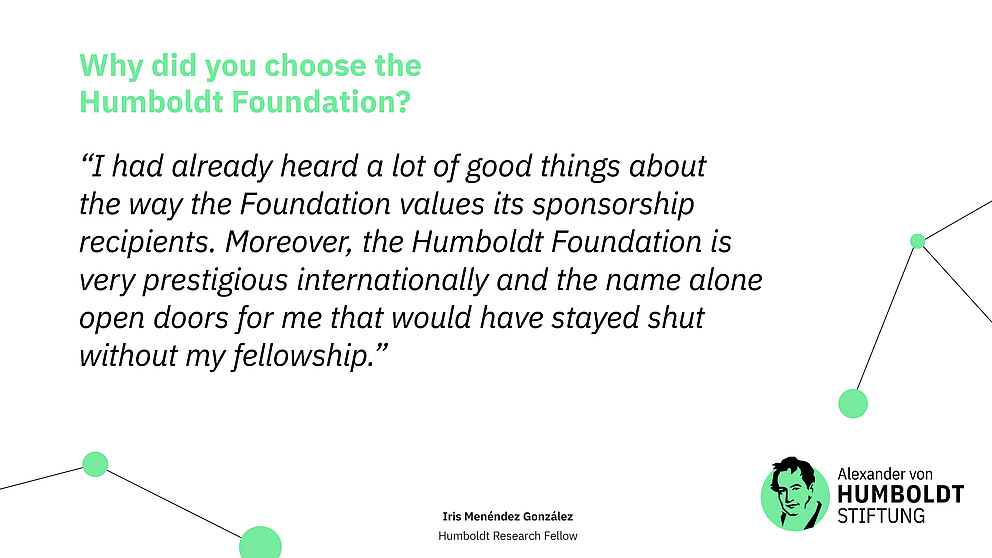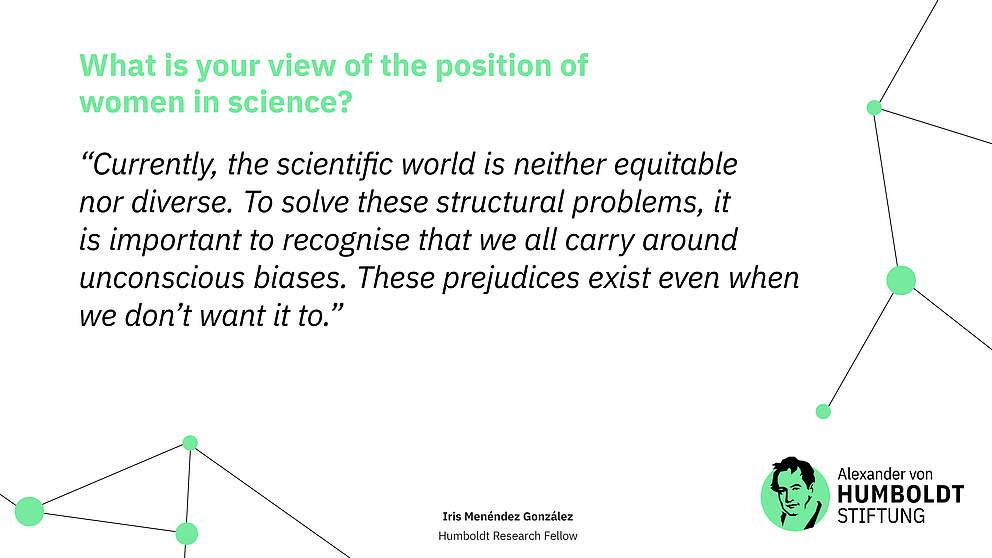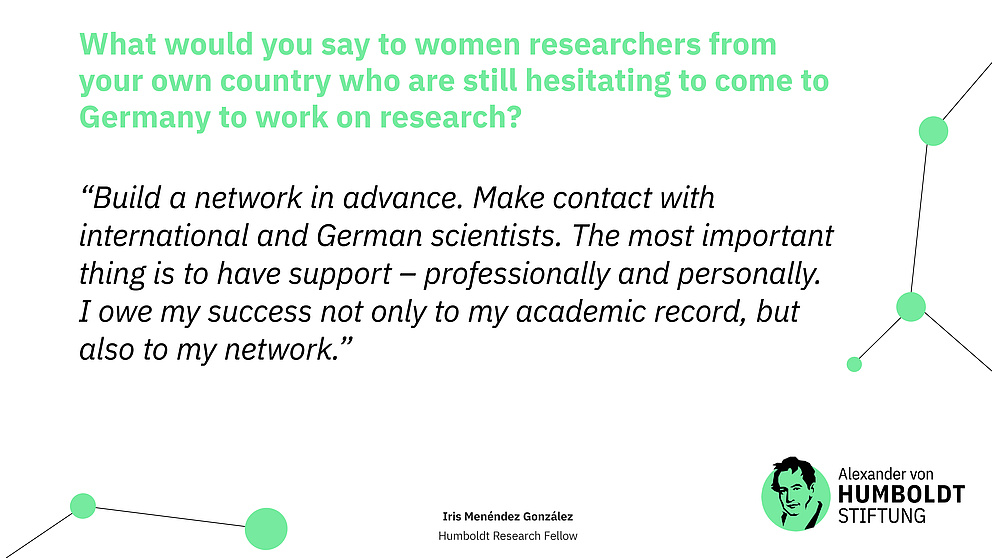
Contact
Press, Communications and Marketing
Tel.: +49 228 833-144
Fax: +49 228 833-441
presse[at]avh.de
Most of all, the Spanish palaeontologist Iris Menéndez González likes being in the Museum für Naturkunde Berlin at night. “Sometimes, at the end of a long day, I visit the Dinosaurs in the atrium. It’s quiet there and empty and I can look at the huge dinosaur skeletons in peace as well as the old Archaeopteryx litographica, one of the most famous fossils in the world,” says Iris Menéndez González. “It’s almost completely preserved; you can even see the imprints of individual feathers on its limestone plate! For me, it’s the Mona Lisa of palaeontology.”
Since March 2023, the Humboldt Fellow has been hosted by Faysal Bibi in the natural history museum’s Amniota Lab where she is studying the morpho-ecological evolution of squirrels and other rodents. She collates data from bones and teeth which she prepares and interprets using geometric morphometric 3D analysis. Her aim is to understand macroevolutionary patterns in rodents and publish her findings in a database. “I also want to show how species in the past responded to changes in the climate and what it means when diversity disappears.”
A friend, also a Humboldtian, recommended the research group to her and the Humboldt Fellowship. “Here I am acquiring international experience and making valuable contacts. In addition, the fellowship gives me financial freedom which is driving my research.”
Fascinating fossils
To be working as a palaeontologist today is a childhood dream come true. As a six-year-old, Menéndez González visited museums and archaeological sites with her parents, read books on the topic and heard about Lucy for the first time, the Australopithecus afarensis skeleton named after the Beatles song that was playing on a cassette recorder when it was found.
“To dig for fossils with other people whilst listening to the Beatles sounded fantastic to me,” says Menéndez González who originally studied biology. When she spent two weeks at the Batallones fossil site as an undergraduate, she discovered her current research field. “The feeling of digging in the sand with a screwdriver to uncover a fossil that nobody had seen for nine million years was amazing and got me hooked.” There she also met her later scientific mentor Manuel Hernández Fernández. He encouraged her to apply for a Master’s course in palaeontology. “I’m not sure I would have dared to do it alone,” she says.
According to Menéndez González, asking women directly whether they would like to apply for certain areas or positions could lead to more equal opportunities in the long term. “It’s important to create the conditions that make an academic career feasible in the face of structural inequalities. Just as the Humboldt Foundation does with its fellowships which include sponsoring families.” Unconscious stereotypes were a significant reason for women being underrepresented in many academic fields. “To really change something, we must expose unconscious stereotypes and prejudices.” Young female researchers should know, she says, “You haven’t done anything wrong if you get asked more questions at selection interviews than your male counterparts or if your research is played down. These things happen. It’s not your fault!”
Facilitating diversity
This is an attitude she owes to her academic mentor Ana Rosa Gómez Cano, who shared her own experiences with her. Together with other women palaeontologists, she founded the initiative Mujeres con los pies en la Tierra or Women with their feet on the ground. By conducting studies on the figures for female researchers at major palaeontological annual meetings, they draw attention to structural inequalities. Their vision is for an academic world in which people of all gender identities and backgrounds are represented. “So far, there is no diversity because people still have fixed ideas about what a scientist should be like.” She wants researchers to stop competing with one another and support each other instead. Menéndez González: “The closer we grow together in the academic world, the more irrelevant privileges will become. This would open up the path into academia for those who have had no access as yet. We should be working on this.”
Author: Esther Sambale




